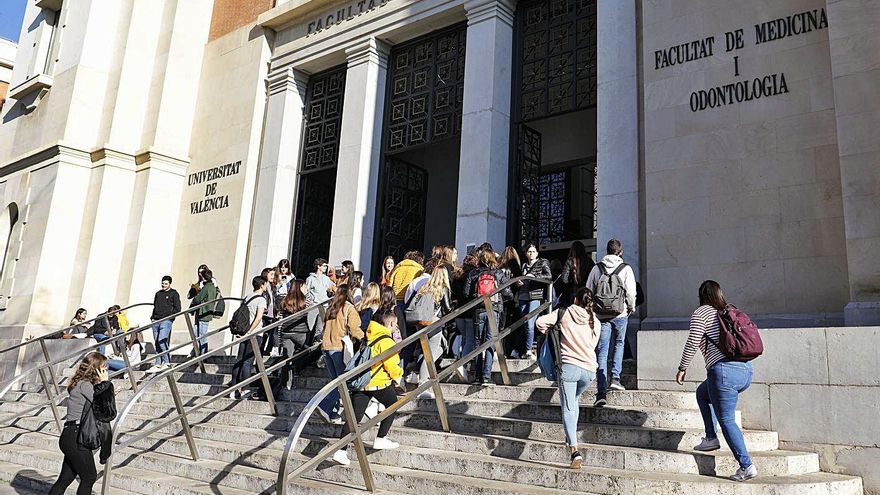

The demand for medical studies at public universities in Valencia increased in the year of the pandemic by about 30%. In the university prescription for the academic year 2019-2020 there were 3,576 and this year, after the university entrance tests (PAU) in June, in full deconfined phase, the demand increased to 5,079. In addition, according to data from the Department of Universities, the highest grade point average for this career in the region went from 13.01 in June 2019 at the University of Valencia to 13.41 just one year later.
What is the reason for this increase? The answers to this question are diverse. Despite the fact that medicine is one of the most sought after university courses in the traditional way, the marked increase in demand during this time is responsible, according to Jesús Andicoberry, coordinator of the Valencian Community of the State Council of Medical Students (CEEM), main factors: “The romanticization of the profession and the humanitarian rationale of Medicine, which is to help others.” The student representative points out that, in addition, one of the points in favor of future university students to choose Medicine is “extensive training of six years, something unusual in other careers after the implementation of the Bologna Plan, which shortened training to four years.”
Not everything is light
However, not all are lights in the careers of medical staff. According to Andicoberry, the pandemic highlighted the “great role of doctors in all areas”, but also highlighted the poor working conditions and “continuous exhaustion” to which professionals are exposed, especially in an exceptional situation.
Enrique Cuñat, president of the association MIR Spain and resident doctor in the third year in the endocrinology department of the Doctor Peset Hospital in Valencia, agrees with him. “Medicine requires low unemployment rates, it is a highly valued social profession, but it is not distinguished by good working conditions,” he says. Cuñat adds that the doctor suffers from a “very high temporary employment rate”, a “very high” liability which is not accompanied by a “proportional” remuneration.
Although he says it is difficult to compare the professions with each other, he says that if the profession is analyzed in Spain and other countries: “We are very stupid”, because our country, he says, “is one of the worst conditions” and, by hence, “Those who can leave.”
It also highlights the idealization of the doctor’s office. “When you finish high school, you think things won’t go wrong. You idealize your future and imagine it with jobs and economic security ».